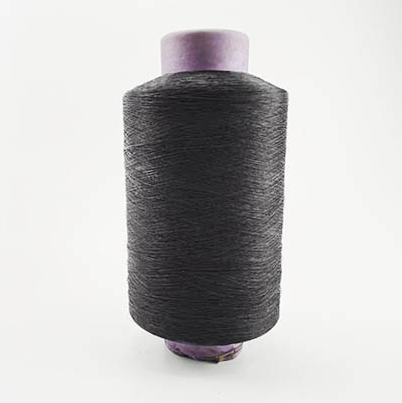Fiberglass yarn is a versatile and durable material used in various industries due to its remarkable properties. Known for its strength, flexibility, and resistance to heat, chemicals, and electrical conductivity, fiberglass yarn has become a popular choice for numerous applications. In this article, we will explore the excellent properties of fiberglass yarn and the promising application prospects it offers in industries such as construction, automotive, aerospace, and more.
1. High Tensile Strength and Durability
Fiberglass yarn is renowned for its high tensile strength, making it a durable and reliable material for demanding applications. The fibers in the yarn are drawn from molten glass, which creates a strong and resilient structure. This property allows fiberglass yarn to withstand significant stress without breaking, making it ideal for use in construction materials such as reinforced concrete, insulation, and roofing materials.
The durability of fiberglass yarn also ensures long-term performance, even in harsh environmental conditions. It can withstand mechanical wear and tear, making it suitable for applications that require extended service life.
2. Heat Resistance
One of the most important properties of fiberglass yarn is its ability to resist high temperatures. Fiberglass can endure extreme heat without degrading, making it an excellent choice for applications where thermal resistance is critical. Industries such as aerospace, automotive, and electronics benefit from the heat-resistant properties of fiberglass yarn, where it is used in insulation, fireproof fabrics, and heat shields.
Fiberglass yarn’s ability to retain its structural integrity even at high temperatures makes it an ideal material for use in environments where fire safety is a concern, such as fire blankets, protective clothing, and building insulation.
3. Chemical Resistance
Fiberglass yarn is highly resistant to chemical corrosion, making it an excellent material for use in environments exposed to acids, solvents, and other corrosive substances. This property makes it a preferred choice in industries such as chemical processing, where equipment and structures must withstand exposure to harsh chemicals.
Additionally, fiberglass yarn’s chemical resistance ensures that it does not degrade or weaken over time, ensuring long-lasting performance in applications such as chemical storage tanks, pipelines, and industrial filters.
4. Electrical Insulation
Fiberglass yarn is a non-conductive material, meaning it does not conduct electricity. This property makes it an ideal material for electrical insulation in a wide range of applications. Fiberglass yarn is commonly used to insulate electrical cables, transformers, and other electrical equipment, ensuring the safe operation of these devices.
In industries such as electronics and telecommunications, fiberglass yarn is utilized to provide insulation for components that need to be protected from electrical currents, reducing the risk of short circuits and equipment failures.
5. Lightweight and Flexible
Despite its strength and durability, fiberglass yarn is lightweight and flexible, making it easy to handle and install. This lightweight nature allows for easier transportation and installation compared to heavier materials such as metal. Its flexibility also enables it to be woven into various forms, including fabrics, tapes, and mesh, further enhancing its versatility in different applications.
Fiberglass yarn’s combination of strength, lightness, and flexibility makes it an ideal material for use in products where weight savings are important, such as in aerospace and automotive components, as well as sports equipment like tennis rackets and fishing rods.
6. Application Prospects of Fiberglass Yarn
The excellent properties of fiberglass yarn open up a wide range of application prospects in various industries. Let’s explore some of the key areas where fiberglass yarn is commonly used and its potential for future developments.
A. Construction Industry
Fiberglass yarn is widely used in the construction industry for reinforcing concrete, insulation, and roofing materials. It enhances the strength and durability of concrete structures, making them more resistant to cracking and environmental damage. In insulation applications, fiberglass yarn provides effective thermal and sound insulation, contributing to energy efficiency in buildings.
As green building initiatives continue to gain momentum, the demand for lightweight, durable, and energy-efficient materials like fiberglass yarn is expected to grow, further expanding its applications in the construction sector.
B. Automotive and Aerospace Industries
The automotive and aerospace industries benefit greatly from the strength, heat resistance, and lightweight properties of fiberglass yarn. In automotive manufacturing, fiberglass yarn is used to produce composite materials that reduce the overall weight of vehicles, improving fuel efficiency and performance. In the aerospace sector, fiberglass yarn is used in the production of aircraft components that require high strength and low weight, such as fuselages and wings.
As the push for more fuel-efficient and environmentally friendly transportation options increases, the demand for lightweight materials like fiberglass yarn is expected to rise in both industries.
C. Electrical and Electronics Industry
In the electrical and electronics industries, fiberglass yarn is used for insulation and protection of electrical components. Its non-conductive and heat-resistant properties make it an ideal choice for applications such as wiring, transformers, and circuit boards. As technology advances and the demand for electrical devices continues to grow, the use of fiberglass yarn in electrical insulation is expected to expand.
D. Marine and Chemical Processing Industries
Fiberglass yarn’s resistance to corrosion and harsh chemicals makes it an excellent material for use in marine applications, such as boat hulls and marine structures. It is also used in chemical processing plants for pipelines, storage tanks, and filtration systems. As these industries continue to seek materials that offer both durability and resistance to harsh environments, fiberglass yarn’s application prospects will continue to grow.
Conclusion
Fiberglass yarn offers a wide range of excellent properties, including high tensile strength, heat and chemical resistance, electrical insulation, and flexibility. These properties make it a valuable material in industries such as construction, automotive, aerospace, and electronics. With its versatile applications and promising prospects, fiberglass yarn is set to continue playing a crucial role in various industries for years to come.


